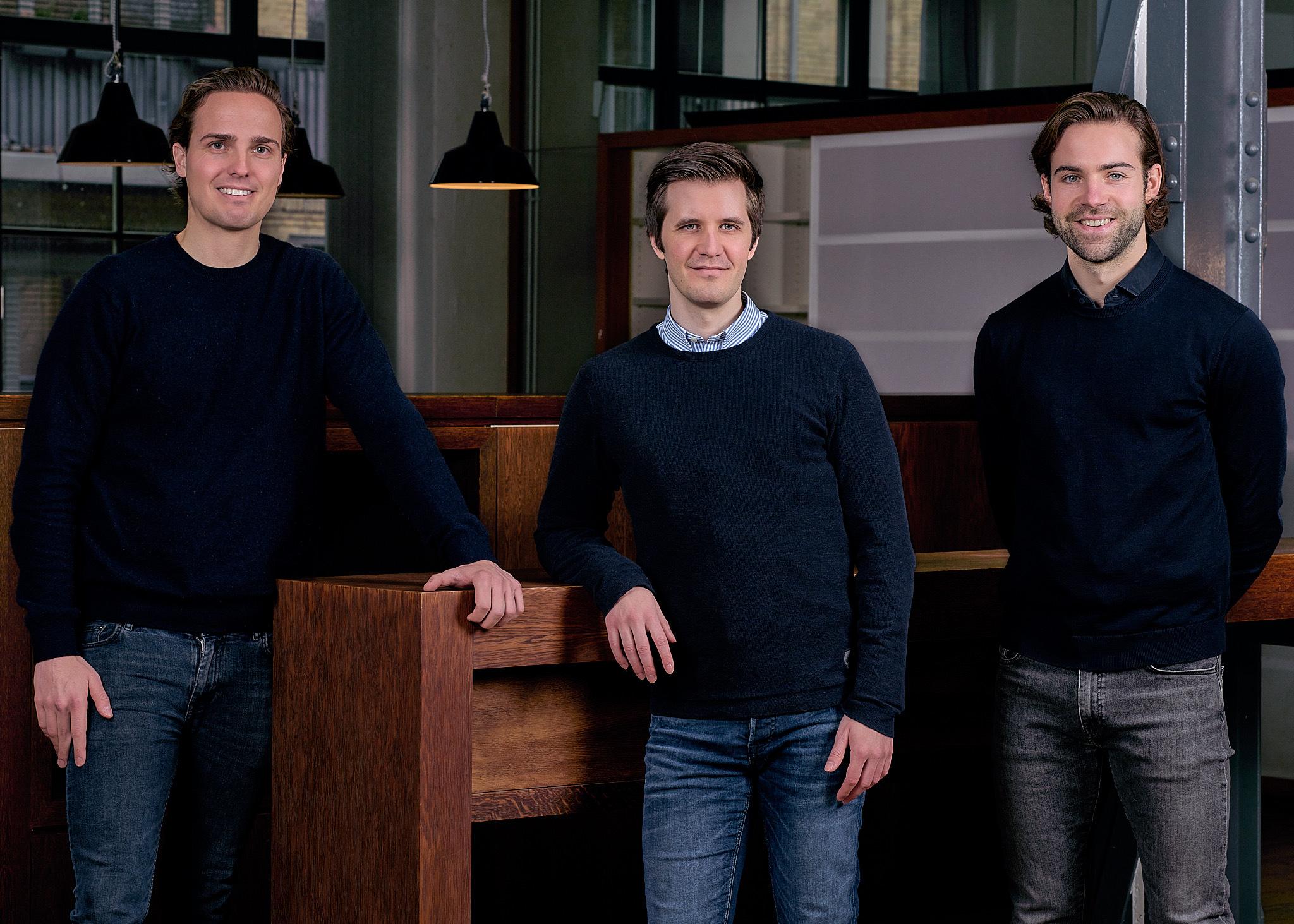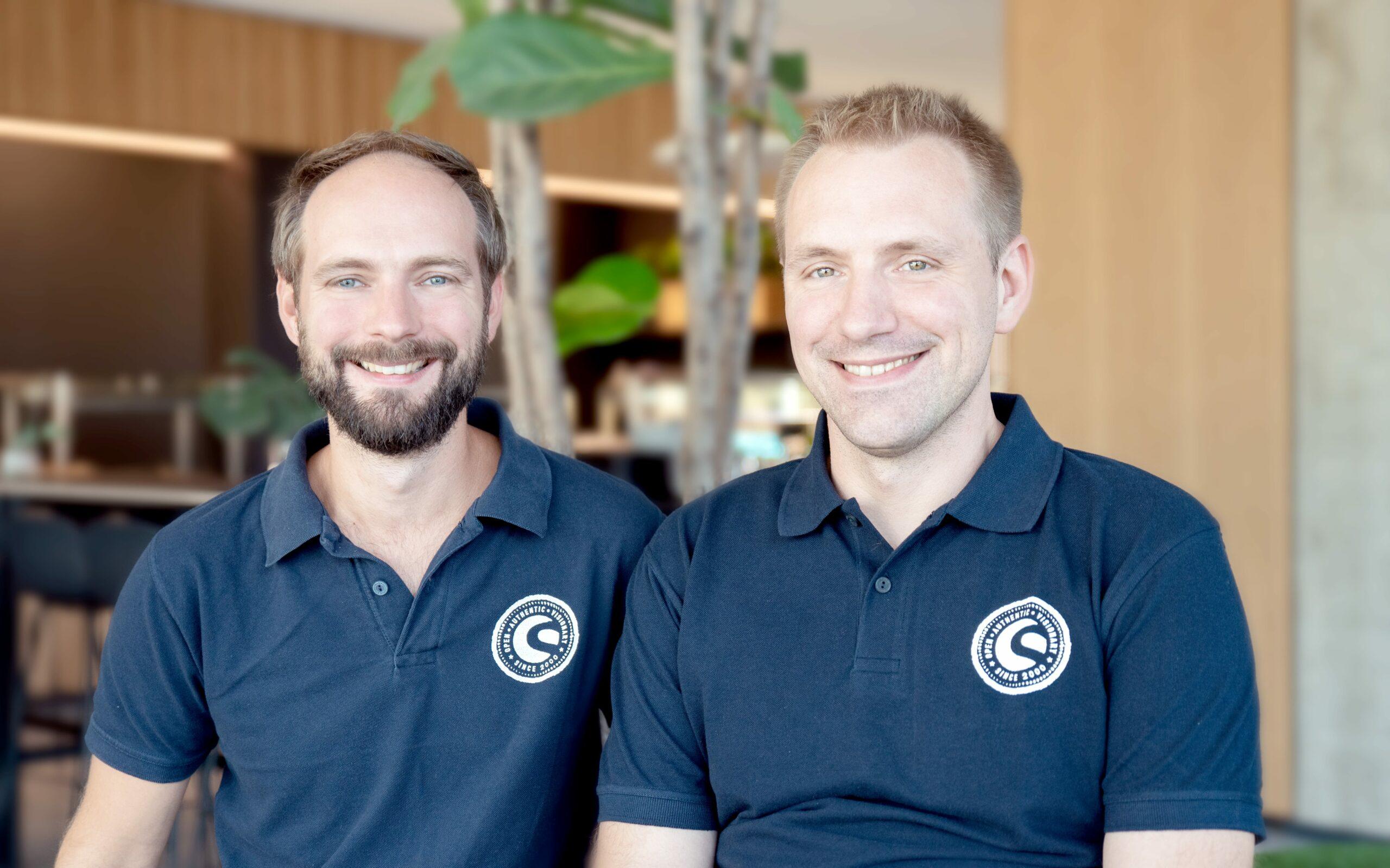WorkMotion helps distributed teams to collaborate


During the coronavirus pandemic, our attitude to remote working has changed dramatically. This pandemic-fueled trend makes it possible to work flexibly at different locations around the world, whether from a vacation, at home in the garden or in the office. Doesn't this open up completely new doors for us? WorkMotion is doing just that: hiring talent from a number of countries in a legally compliant manner and bringing in people from all over the world. In the Startbase interview, co-founder Carsten Lebtig tells us what the decisive idea was for founding the company and what tips they can give us regarding remote work.
Why did you found your start-up?
One result of the corona crisis is that many companies and employees have familiarized themselves with remote work and thus discovered its advantages. If you can manage a team virtually or in a hybrid format, you no longer have to look for employees within a 50-kilometer radius of the company. We founded WorkMotion to make it possible for companies to hire across national borders. We are convinced that working and hiring without local barriers will have a positive impact on us as a society.
What problem are you addressing and how are you solving it?
There is a shortage of qualified tech and IT professionals in Germany, the UK and many other countries. In addition, the baby boomer generation will gradually retire over the next 10 years. The skills shortage is therefore intensifying and it is becoming increasingly important for companies to expand their search for employees across national borders. WorkMotion is your partner for the simple and uncomplicated recruitment of foreign employees at the touch of a button. Through our platform, our customers can hire employees in over 160 countries without having to set up a local country organization. This is made possible by our network of partners in each country who are already established locally with a national company. We guarantee legal compliance with country-specific labor laws, and our software automates salary and wage payments as well as social security contributions and taxes for the global team.
HR software is now a dime a dozen - how do you differ from the others? What is your USP?
We differ from the usual HR software management systems in that we can map salary payments, social security contributions and taxes for employees in over 160 countries in a legally compliant manner. Unlike a digital personnel file, in which mainly static data such as name, salary, function, etc. is collected. Our software must be able to map highly complex, global processes. Our USP clearly lies in the fact that we develop software at the interface of contracts and salary payments for processes across national borders.
Where did you get to know each other as a team?

We didn't know each other before WorkMotion, it was a kind of coincidence that brought us together. Carsten had already been working on WorkMotion for a few weeks when he met Felix. At the time, Felix was an investor at a large Berlin start-up and was familiar with WorkMotion's business model from a competitor. He was so convinced by the solution that he actively considered founding a similar company. A mutual contact then brought Carsten and Felix together. At the same time, Carsten was already in contact with Karim, who was in charge of internationalization and remote teams at another Berlin startup. He was therefore familiar with the challenges of hiring employees abroad from his own experience. So it was a perfect fit that he found out by chance that Carsten was already working on a solution and decided to support him as a founder at short notice.
What were the biggest challenges you had to overcome at the beginning of your start-up?
As with any fast-growing company, our challenge was to find the right team members. Working for a fast-growing company is not easy, things change all the time. Six months ago we had 30 employees, three months ago we had 60, and today we have over 150. So our company changes from the ground up every three months. And to master these changes, we need the right employees. Of course, we have an advantage in that we use our WorkMotion product ourselves to recruit the best talent globally.
It is more important than ever for companies not to be limited by their local location, but to acquire talent globally
Carsten Lebtig, WorkMotion
In which direction do you think the labor market will develop?
As already mentioned, we expect a steadily growing shortage of skilled workers in many countries due to digital and demographic change. An employee market is therefore emerging. It will therefore be more important than ever for companies not to be restricted by their local location, but to acquire talent globally. We also believe that the flexibility of working models can be an important advantage when recruiting employees in the future. Employees want the freedom to work from home from time to time or perhaps simply add a 2-week "workation" to a vacation in Spain.
How do you manage to lead a team and create team cohesion despite remote working?
At WorkMotion, we already focus on structured onboarding for our new employees. In the past, you could look over the new employee's shoulder and occasionally give a tip or answer a question. Nowadays, this is no longer possible when employees work for the same company all over the world. We have built up an extensive knowledge database internally, which is also continuously maintained and updated. This is the only way we can distribute knowledge throughout the company in a standardized way. Across team and department meetings, we also have a weekly all-hands meeting in which all employees take part. This is where we share important decisions, provide an outlook for the coming weeks and months and, of course, celebrate joint successes.
How can "home office" or "remote work" be better integrated into companies? Do you have an all-round solution or any other tips?
We currently have around 150 employees at WorkMotion and will probably have over 200 by the end of the year. The majority work 100% remotely, with some coming into the office for meetings, workshops or team events. Remote work is therefore part of our DNA. In our experience, an entire startup ecosystem has formed around the topic of remote management. Zoom and Slack have been around for a while, of course, but new tools for virtual feedback processes, project management and the like are springing up and continuing to develop. As is so often the case in life, I don't think there is a one-size-fits-all solution. But if you are actively looking for solutions, you will definitely find them these days.
And one last question: who would you like to have dinner with and why?
Basically, I am fascinated by people who are among the thought leaders and best in their respective fields, whether in business, politics or culture. Of course, Elon Musk comes to mind, who in my opinion is something like the Leonardo da Vinci of our time.
Thank you very much for the interview.
Personal details: Carsten Lebtig began his career at McKinsey. After a short time, however, he decided to set up his own business and achieved his first success with test.io in 2011. After working as a business angel and investor, he founded "WorkMotion" together with two co-founders in 2020. The founder is happily married and has two children

Newsletter
Startups, stories and stats from the German startup ecosystem straight to your inbox. Subscribe with 2 clicks. Noice.
LinkedIn ConnectFYI: English edition available
Hello my friend, have you been stranded on the German edition of Startbase? At least your browser tells us, that you do not speak German - so maybe you would like to switch to the English edition instead?
FYI: Deutsche Edition verfügbar
Hallo mein Freund, du befindest dich auf der Englischen Edition der Startbase und laut deinem Browser sprichst du eigentlich auch Deutsch. Magst du die Sprache wechseln?






















